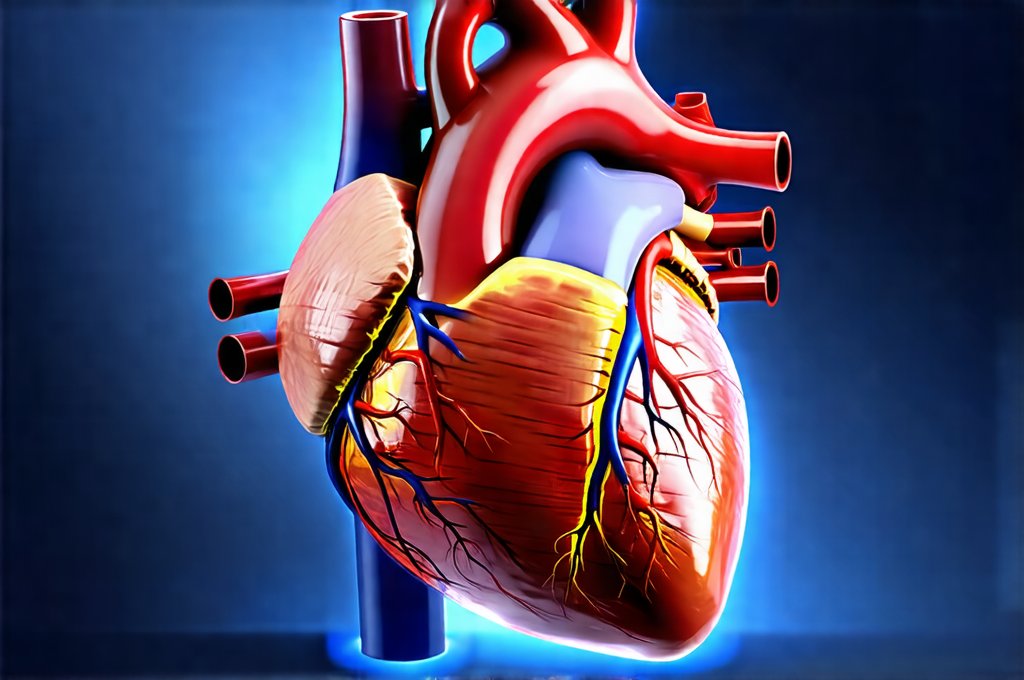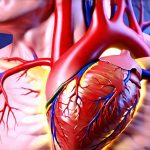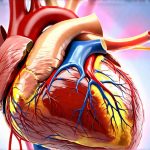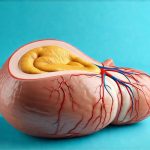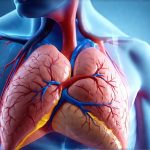The chest is a remarkably sensitive area, housing vital organs and serving as the epicenter for many bodily functions. It’s no surprise then, that discomfort in this region frequently triggers anxiety, often leading individuals to immediately suspect a serious heart problem. However, the reality is far more nuanced: what feels like a crushing weight on your chest might not be cardiac related at all. Gastrointestinal issues – specifically gas pain – can convincingly mimic symptoms of heart disease, causing significant worry and potentially unnecessary trips to the emergency room. Understanding the differences between these conditions, recognizing risk factors, and knowing when to seek medical attention are crucial for peace of mind and appropriate care.
The overlap in symptom presentation is substantial. Both gas pain and heart issues can cause chest discomfort, a feeling of pressure, shortness of breath, and even radiating pain into the arms, jaw, or back. This similarity arises from shared nerve pathways; the vagus nerve innervates both the digestive system and the heart, meaning signals from either source can sometimes be misinterpreted by the brain. Furthermore, anxiety itself – a natural reaction to chest discomfort – can exacerbate both conditions, creating a vicious cycle where fear amplifies symptoms and makes it harder to discern their origin. It’s important to remember that self-diagnosis is never advisable; this information aims to provide context and encourage informed conversations with healthcare professionals.
Recognizing the Source: Gas Pain vs. Heart Discomfort
Gas pain typically originates in the digestive tract, often due to trapped gas within the stomach or intestines. This can be caused by various factors – swallowing air while eating, consuming gas-producing foods (beans, broccoli, carbonated drinks), lactose intolerance, or even stress. The sensation is frequently described as cramping, bloating, or a dull ache that comes and goes. Unlike heart pain, which often feels heavy, squeezing, or tight, gas pain tends to be more localized and less consistently oppressive. It can also be relieved by passing gas or changing body position.
The nature of the discomfort differs significantly. Heart-related chest pain – angina or a heart attack – is generally described as a profound pressure, tightness, or crushing sensation that doesn’t necessarily subside with movement or belching. It’s often accompanied by other symptoms like sweating, nausea, dizziness, and shortness of breath. While gas can cause bloating and distension, it rarely produces the cold sweat and overwhelming sense of impending doom associated with a cardiac event. It’s crucial to differentiate between these experiences; however, this is easier said than done when experiencing acute discomfort.
Crucially, heart pain isn’t always dramatic. It can present as mild discomfort, especially in women, elderly individuals, or those with diabetes, making it even harder to distinguish from gastrointestinal issues. This underlines the importance of seeking professional evaluation for any unexplained chest discomfort, regardless of how minor it may seem. A thorough medical assessment is the only way to accurately determine the source of the pain and ensure appropriate treatment. If you are concerned about similar symptoms, consider reading when acid reflux mimics heart problems for more information.
Differentiating Factors: Key Symptoms to Watch For
One key area to examine when trying to distinguish between gas pain and heart issues lies in associated symptoms. While both can cause shortness of breath, the quality differs. Gas-related breathlessness is often linked to bloating or a feeling of fullness, while cardiac-induced shortness of breath feels more severe, labored, and may occur even at rest. Similarly, nausea can accompany both conditions, but heart attack nausea is frequently described as more intense and accompanied by cold sweats, dizziness, or lightheadedness. Can frequent nausea be caused by acid reflux alone?
Another important distinction revolves around what triggers the pain. Gas pain often flares up after eating certain foods or during periods of stress related to digestion. Heart-related discomfort is typically triggered by exertion – walking uphill, climbing stairs, or even emotional stress – and may be relieved with rest. However, this isn’t always consistent, particularly in unstable angina where pain can occur at rest. It’s vital to consider the context of the symptoms: when did the pain start? What were you doing beforehand? Does anything make it better or worse? Understanding gut issues mistaken for other conditions can also provide clarity.
Finally, pay attention to the duration and pattern of the pain. Gas pain is usually episodic – it comes and goes – while heart-related discomfort can be more persistent, even if fluctuating in intensity. A prolonged episode of chest pain lasting longer than 20 minutes, especially if accompanied by other concerning symptoms, demands immediate medical attention. Remember that these are general guidelines; individual experiences vary, and a healthcare professional is best equipped to assess your specific situation.
The Role of Lifestyle and Pre-existing Conditions
Certain lifestyle factors can increase the likelihood of both gas pain and heart disease, making differentiation even more challenging. A diet high in processed foods, sugary drinks, and low in fiber can contribute to digestive issues and increased gas production. Similarly, a sedentary lifestyle, smoking, and chronic stress are major risk factors for heart disease. Addressing these lifestyle factors is beneficial for overall health, regardless of the source of your chest discomfort.
Pre-existing medical conditions also play a significant role. Individuals with known gastrointestinal disorders – irritable bowel syndrome (IBS), Crohn’s disease, ulcerative colitis – are more prone to experiencing gas pain and may be quicker to attribute chest discomfort to their existing condition. Conversely, those with a history of heart disease, high blood pressure, or diabetes should be particularly vigilant about any chest pain and seek prompt medical evaluation. How GERD can mimic a heart attack is also important to note here.
It’s crucial to understand that the presence of risk factors doesn’t automatically equate to a diagnosis. They simply highlight the importance of being aware of your health status and seeking appropriate care when needed. Regular check-ups with your doctor are essential for monitoring your overall health, identifying potential risks, and developing personalized strategies for prevention and management.
When to Seek Immediate Medical Attention
Despite the similarities, certain symptoms should always prompt immediate medical attention. These include: – Severe, crushing chest pain that doesn’t subside with rest or over-the-counter remedies. – Shortness of breath accompanied by sweating, nausea, dizziness, or lightheadedness. – Pain radiating to your arms, jaw, neck, or back. – A sudden and overwhelming feeling of anxiety or impending doom. – Loss of consciousness or near-fainting spells.
Even if you suspect gas pain, it’s better to err on the side of caution and seek medical evaluation if the discomfort is severe, prolonged, or accompanied by concerning symptoms. Emergency room doctors are equipped to quickly differentiate between cardiac and gastrointestinal causes of chest pain using various diagnostic tools – electrocardiograms (ECGs), blood tests, and imaging studies.
Never attempt to self-diagnose or treat chest pain. Time is critical when it comes to heart disease; prompt diagnosis and treatment can significantly improve outcomes. If you are unsure about the cause of your chest discomfort, seek medical attention without delay. Your health is paramount, and a proactive approach is always the best course of action. If heartburn seems to be linked to other issues, explore why reflux might be mistaken for allergic reactions. Also, consider whether reflux can cause ear pain. Finally, if you suspect dietary issues, read about certain cheeses safe for acid reflux sufferers.

